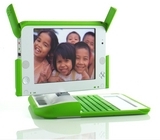From the Inside-Out...
/"I never teach my pupils;
I only attempt to provide the conditions in which they can learn." Albert Einstein
I have been listening to an interview with Oliver Sacks on his new book, Musicophilia. He mentions that much more of the brain is recruited for music than for language. There is no one spot where a neuroscientists goes to access music from the brain. Music pulls from many, many parts. Music, Sacks asserts is innate, even for those who like myself, are musically challenged.
I recall hearing about a prisoner who kept himself sane by understanding the idea that "Once one gets deeply into a subject, he discovers that it relates to everything else in the universe." In deed, this soldier's mind was able to take untold learning journeys that kept him not only sane, but enlightened under the most awful of external realities. No one told him what to learn next, or how to connect. His mind took him on these explorations.
Both of these stories reveal the awesome innate abilities that each of us have inside us. Yet, almost all schooling assumes that learning comes from the outside and fights its way into our brains so that we can grow up knowing what we need to know...


